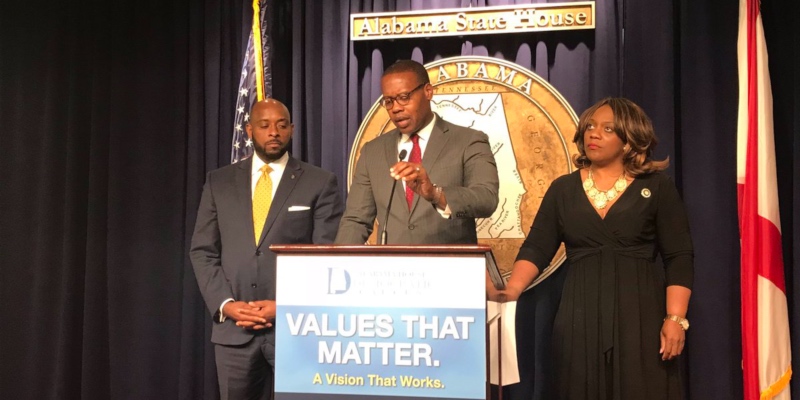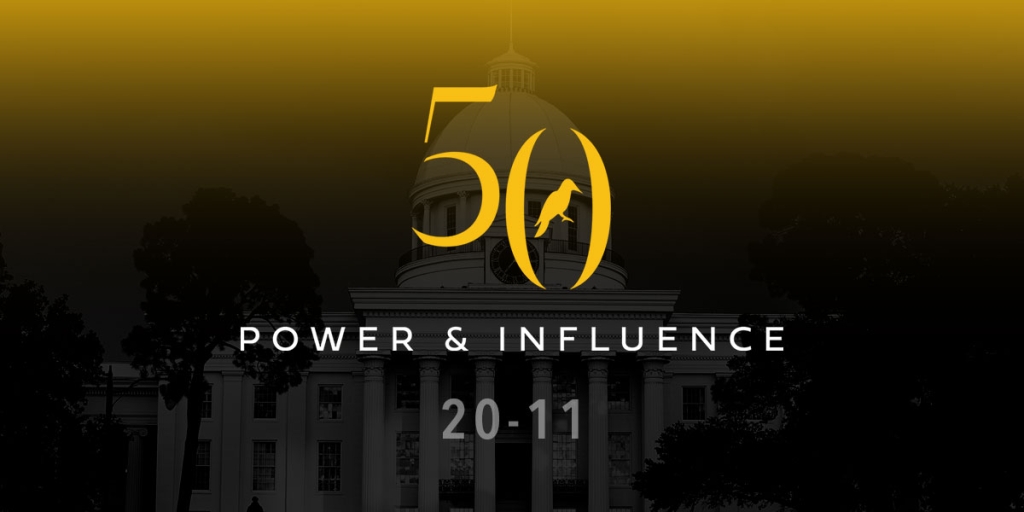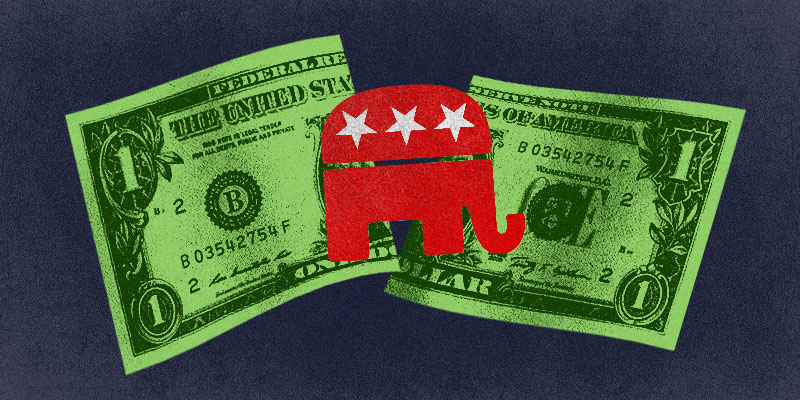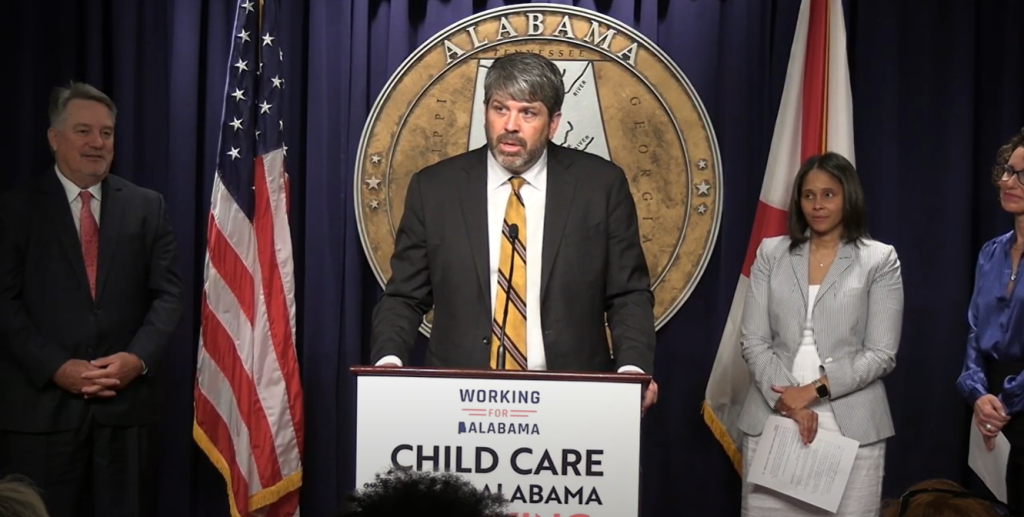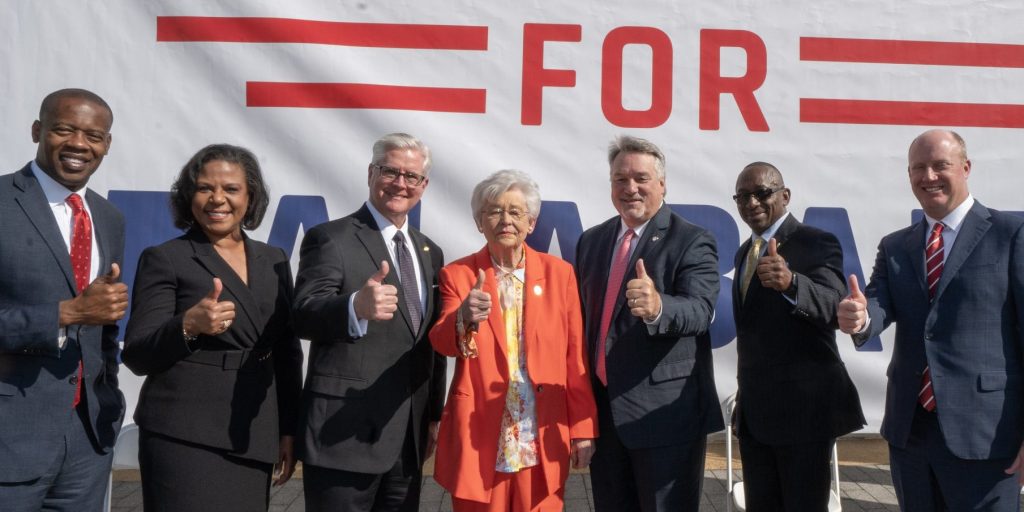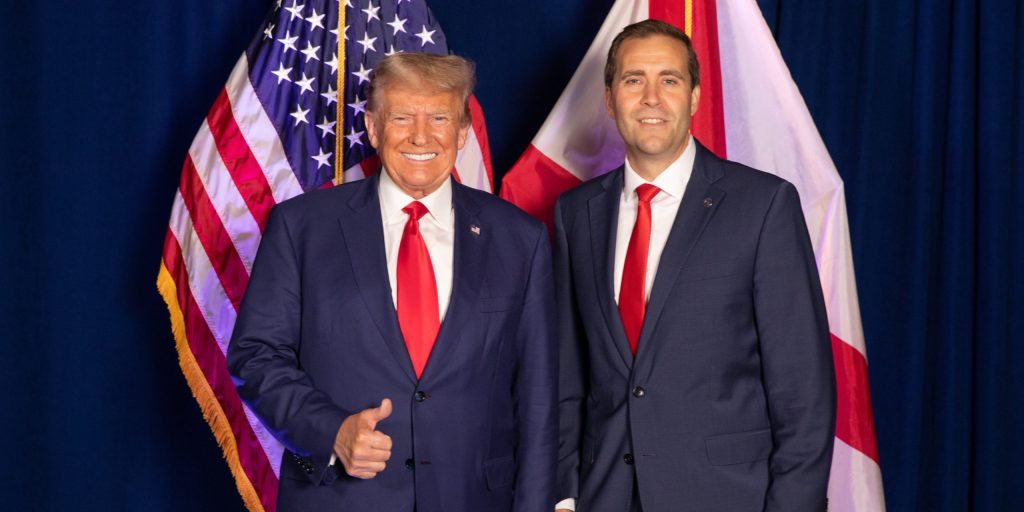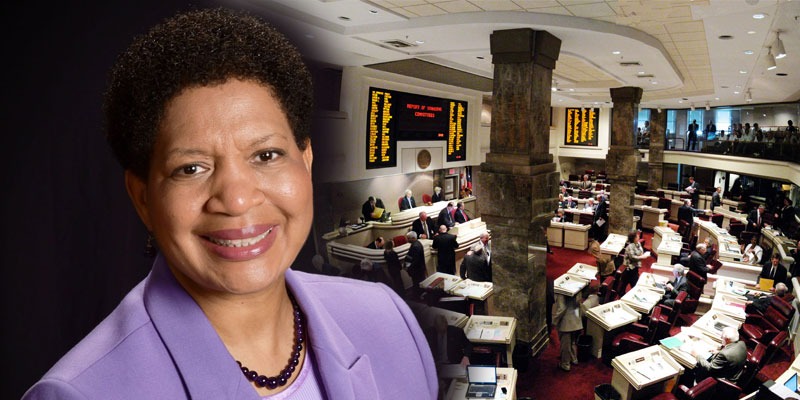MONTGOMERY — Leadership of the Alabama House Democratic Caucus on Wednesday hosted a press conference to explain their opposition to SB 220, a constitutional amendment that would legalize a lottery in Alabama.
This came after the lottery legislation failed on a procedural vote on the House floor Tuesday afternoon, with only three Democrats voting for the lottery. Immediately before the Wednesday press conference began, State Rep. Merika Coleman (D-Birmingham) took issue with Yellowhammer News reporting that Democrats had blocked the lottery bill from advancing, with Coleman calling it “a bullshit article.”
However, House Minority Leader Anthony Daniels (D-Huntsville) then said that after a meeting, the Democratic Caucus is now indeed unanimous in their opposition to SB 220, with Daniels saying that the three prior “yay” votes are prepared to revert to the caucus position and vote “nay” if the proposal comes back up this session.
Daniels later said he does not personally think the lottery bill will be voted on again this session, however.
Daniels and Coleman in the press conference both said that they are not opposing the lottery to simply oppose a lottery. Coleman outlined that she has supported a lottery for the state of Alabama for the last 17 years, though the Democratic Caucus believes there are “deliverables” or priorities of theirs that are more important than allowing the people of Alabama to vote on just any lottery proposal.
These priorities – the ones that the Democratic leaders advised were leading to their opposition – primarily include the belief that more of the lottery revenues should go to education and that essentially all of the lottery revenues should be earmarked.
The House minority leader said he needed these earmarks in writing in the legislation because that was the only way to guarantee the funding would go to where he wants it.
SB 220 as approved by the House Economic Development Committee would send 75% of revenue to the general fund and 25% to the Education Trust Fund. The only earmarked revenues would be 0.25% going to resources and treatment for gambling addicts.
The bill passed beforehand by the Senate did not allow for any revenue to benefit education.
Senate President Pro Tem Del Marsh (R-Anniston) has said that lottery money benefitting the general fund would protect the education fund.
The general fund has obligations that are expected to grow significantly in the coming years, including Medicaid and the corrections system.
The Democratic Caucus leaders on Wednesday emphasized that a higher percentage of the revenues need to go to education and proposed some earmarking ideas for that education revenue, including a capped scholarship fund for higher education and pre-k, increases for retired teacher compensation and setting money aside for greater active teacher incentives, pay and resources.
That same type of earmarking is a demand for any general fund revenue, too. Daniels multiple times mentioned that the “rumor” floating around is that the general fund lottery revenues currently under SB 220 would go towards prison construction and even funding lawsuits brought against the state regarding recently passed laws, including the HB 314 abortion ban.
Coleman called it “deeply troubling” that un-earmarked lottery revenues could fund prison construction. She said her father asked her to vote against SB 220 so as to not fund “Kay’s prisons,” speaking of the governor.
The House Democratic leadership wants to see general fund lottery revenues earmarked for healthcare. Coleman explicitly advocated for this earmark going to “Medicaid expansion.” Daniels earlier in the day on “The Dale Jackson Show” called this “a rural healthcare expansion program,” seemingly avoiding the Obamacare stigma that “Medicaid expansion” has in Alabama.
Yellowhammer News reported Tuesday that the Democrats’ best chance for Medicaid expansion was the lottery bolstering general fund revenues. This is the same article Coleman took issue with.
Daniels was asked at the press conference if the Democratic Caucus would require that the clean, paper-only lottery proposed by SB 220 be expanded to include other electronic gaming to win their support. He acknowledged that was probably not a realistic expectation for a lottery to be able to pass, saying, “I’ll take it how I can get it.” Daniels reiterated that he just wants the paper lottery revenue going more to education proportionally and that essentially all of the lottery revenue must be earmarked similar to how the Democrats are proposing.
Jackson asked Daniels how electronic bingo/dog tracks factor into his caucus’ position:
“It doesn’t play a significant role in our caucus…”
— Sean Ross (@sean_yhn) May 22, 2019
Near the end of the press conference, Daniels emphasized he will not “move forward on a new deal” with Republicans until the commitments Daniels said they made to him during the Rebuild Alabama talks are met. Daniels specified that means “a number of issues,” not just Medicaid or healthcare. He named the higher education funding structure as one of these other outstanding issues, saying Auburn and Alabama State did not get a fair shake from the nonpartisan ACHE formula that was used for the governor’s budget recommendations this year.
Daniels does not personally expect the lottery bill to come back up for a vote this session
— Sean Ross (@sean_yhn) May 22, 2019
The sponsor of the lottery legislation, State Sen. Greg Albritton (R-Atmore), also appeared on “The Dale Jackson Show” on Wednesday and said he is not optimistic that SB 220 will pass out of the legislature and get to a vote of the people.
State Rep. Steve Clouse (R-Ozark), who is carrying the lottery bill in the House, reportedly told WSFA on Wednesday that the lottery will not come back up for a vote this session, meaning SB 220 is dead in his eyes.
Speaker Mac McCutcheon (R-Monrovia) told reporters two hours after the Democratic press conference that the lottery bill is “probably” dead.
“We may start looking at other options” moving forward, McCutcheon said, dismissing the notion of the lottery being handled in a special session with the corrections system (prisons).
— Sean Ross (@sean_yhn) May 22, 2019
Sean Ross is a staff writer for Yellowhammer News. You can follow him on Twitter @sean_yhn




